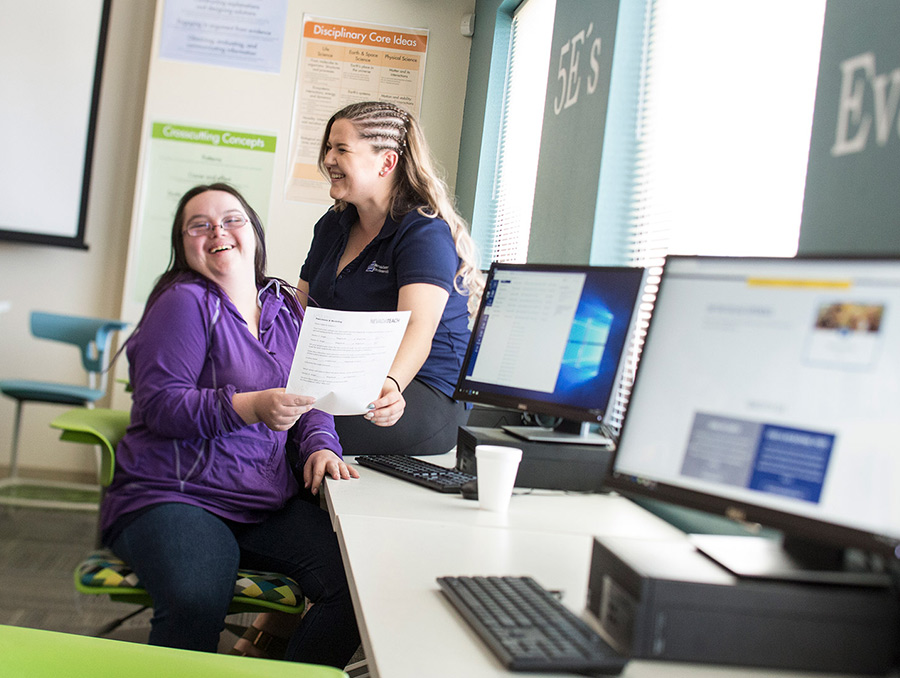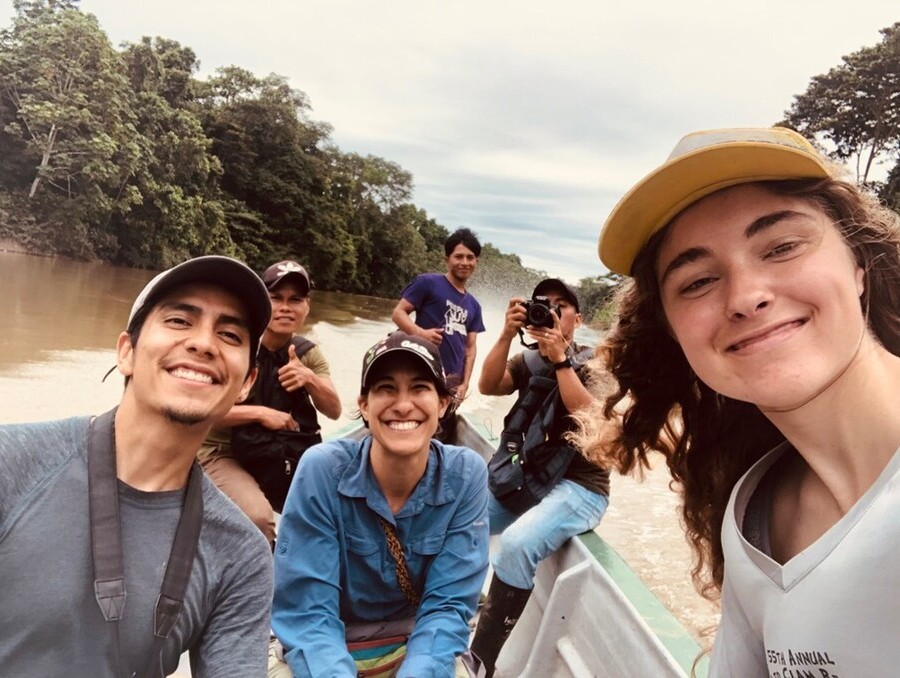The Nevada Center for Excellence in Disabilities, operating underneath the College of education and Human Development offers the Path to Independence (P2I) program for students with intellectual disabilities. The non-degree certificate program offers participants two years in college, with access to the same classes as other students.
“I think the only major difference is that oftentimes they'll meet their education coach at Starbucks or someplace you would meet a friend and walk to class,” Jessica Keefhaver, academic coordinator at the P2I program at the University of Nevada, Reno said. “The education coach is paid to go with students to class and support them. We hire other college students to be education coaches so that they're a similar age and with similar interests as the participants.”
Keefhaver said that the day-to-day experience of college is essentially the same as it would be for any other student, and the confusion that anyone experiences their first semester in college is an especially huge growth point for participants of the P2I program.
(Video taken prior to March 2020 and the COVID-19 pandemic. Source: Rubys Rainbow)
“Every college freshman shows up and they're like, ‘Oh my gosh, what do I do? Who do I ask for help?’” Keefhaver said. “Most college freshmen know to at least ask somebody, to walk up to the information desk or to ask somebody in the library. That's part of what some of our students don't really know how to do, and so education coaches model that for them.”
“If they call me or text me, I'll ask them what buildings they see, or to send me a picture of where they are, and then I can help them.”
While the program doesn’t have a residential component, the students still learn life skills and organizational tactics. Depending on the students’ needs and capabilities, this may be learning to use digital technology like alarms on smartphones or the paper equivalents.
“As far as day-to-day living stuff that we would help them out with, it’s knowing how to use a calendar, to set appointments and show up to places on time,” Keefhaver said.
Although every student’s case is unique, navigating around campus, going to class and discovering what you want to do with your free time is frequently a huge increase in autonomy for the students in the P2I program.
“If they're coming out of a special education, self-contained classroom where they weren't really part of the high school before, they've always had an adult make sure that they know what to do, where to go and how to spend their time,” Keefhaver said. “They're always managed by somebody else. This level of freedom in college and the ability to make a decision about what they want to do, a lot of times, is the first time they've ever been unsupervised.”
Keefhaver said that she would encourage parents who are considering college for their student with a disability to reach out to the P2I program or another professional to determine if it’s right for their family.
To learn more about the P2I program or to become an education coach, visit Path to Independence.
















